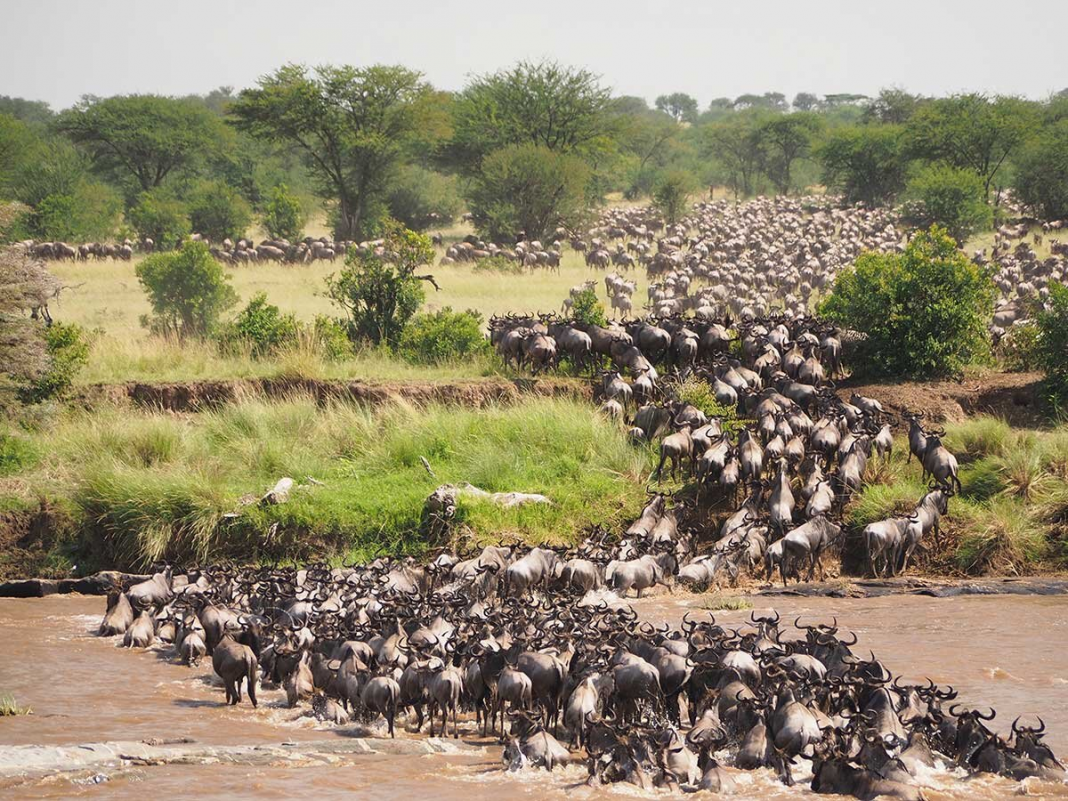The East African Community (EAC) joins the rest of the world in celebrating the World Tourism Day, celebrated on the 27th of September every year. Themed ‘Tourism and Rural Development’, the official 2020 celebration will be held on Monday, 28th September in a two-hour virtual session.
Nowhere else in the world is this year’s theme more fitting than the EAC Partner States, as most of the tourism products in the region are mainly nature based and thus found in the rural areas. The EAC region largely depends on national parks and reserves, as well as wildlife conservancies that traverse the entire region.
Home to some of the beautiful wildlife sites in the world, the EAC region hosts a quarter of all protected areas in Africa and some of the greatest global concentrations of large mammals in both protected and non-protected areas. The region is known for the unparalleled phenomenon of wildebeest migration that occurs annually between July and October in the Serengeti and Maasai Mara Ecosystem that traverses Kenya and Tanzania, as well as other world renowned tourist sites such as the Ngorongoro conservation area, Amboseli National Park and Gorilla viewing in Rwanda and Uganda among others.
Besides wildlife, the region boasts of rich cultural diversity that arises from different ethnic groups, each with a unique story to share with the world.
The communities in rural areas especially those living adjacent to the wildlife conservation areas have an opportunity to benefit from the tourism sector along the entire value chain. These include employment opportunities in the hotels and other tourism related establishments, entrepreneurship in the form of sell of artifacts, and most importantly in some community’s benefit from revenue sharing schemes that have been established under the conservation areas.
The EAC has made major strides in putting up infrastructure in the region such as increased road connectivity between and within the Partner States, which has opened up tourism areas and enhanced access to tourist sites.
The EAC Deputy Secretary General in charge of the Productive and Social Sectors Christophe Bazivamo notes that the tourism sector’s contribution to GDP in the region is estimated at 9 per cent, and an average of 20 per cent of export earnings. “As regards employment, the tourism industry contributes an average of 8 per cent to job creation in the Partner States, which is about 4.2 million direct and indirect jobs in absolute terms, with a huge proportion of the jobs being generated in the rural areas,” said Hon. Bazivamo.
“Tourism has important backward linkages to the local economy and therefore contributes to growth and employment in other sectors including agriculture and manufacturing that benefit the local communities,” added the Deputy Secretary General.
The COVID-19 pandemic has brought about unprecedented economic disruptions that have dramatically affected the tourism sector in the region. This has had far reaching effects especially to the rural communities that depend on tourism through loss of jobs and livelihoods.
However, the EAC recognizes Tourism as one of the most resilient sectors and is therefore prioritizing its recovery. The recovery of the sector is also expected to stimulate the recovery of allied sectors such as agriculture and manufacturing that will also benefit rural communities.
To this end, a number of measures and interventions to revitalize the tourism sector have been proposed. Topping the list is the need to strengthen domestic and regional tourism, which is expected to recover faster than international tourism.
The EAC Partner States are therefore encouraged to undertake aggressive domestic tourism campaigns in order to stimulate demand for tourism goods and services by the domestic market. In addition, the EAC proposes strengthening market access for small and medium enterprises, local communities, women and youth by enhancing their marketing and promotion skills through digital platforms.
“As we re-think and re-engineer the tourism sector following the Pandemic, we will continue putting a lot emphasis on the local communities to ensure that they optimally benefit from the tourism sector in line with the spirit of the EAC Treaty that puts the EAC Citizens at the centre,” said Bazivamo.







